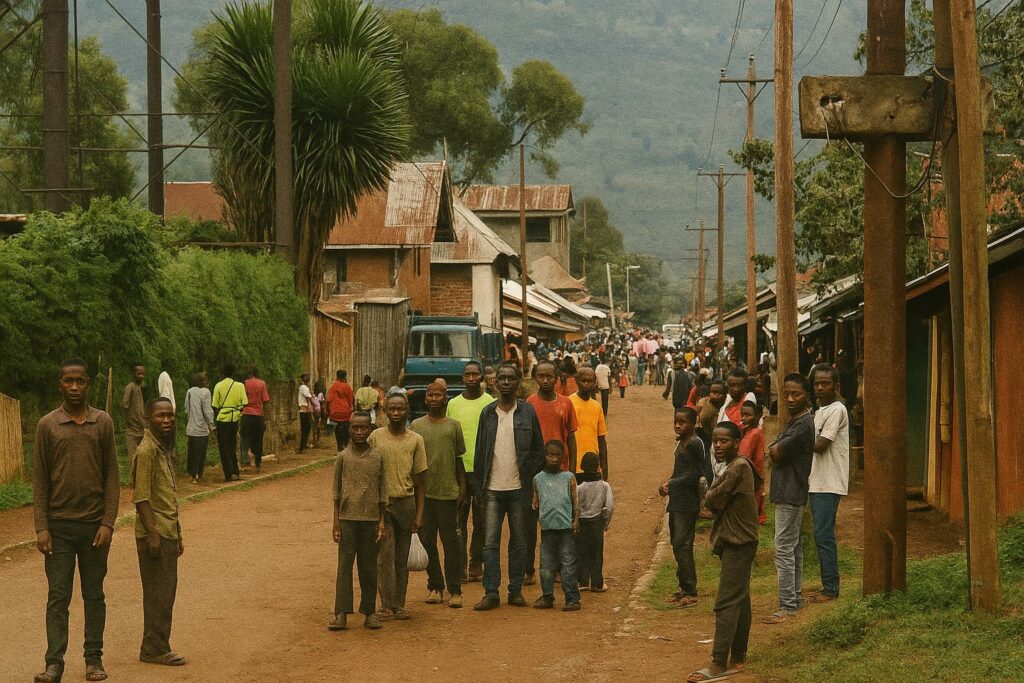Doha’s Quiet Stage Sets a High Bar for Conflict Resolution
The Qatari capital, long accustomed to discreet shuttle diplomacy, now hosts envoys from Kinshasa and representatives of the March 23 Movement. M23’s opening communiqué, delivered with measured firmness, calls for the release of detained fighters, the annulment of arrest warrants and a credible amnesty framework before a cessation of hostilities can be formalised. Kinshasa, while publicly emphasising territorial integrity, has cautiously welcomed the overture, mindful of recent military gains by the national army and its partners around Goma (Agence Congolaise de Presse, 6 May 2024). Doha therefore functions both as venue and signal, suggesting that external guarantors may help depoliticise the theatre of negotiation.
Behind the choreography lies an uncomfortable arithmetic. United Nations data indicate that more than 860,000 civilians have been displaced since the rebel resurgence in late 2021, a figure that nudges regional donors toward fatigue even as humanitarian needs keep climbing (OCHA, March 2024). By volunteering a ceasefire initiative, M23 seeks to temper the perception that it thrives on protracted insecurity, whereas Kinshasa calculates that a negotiated pause could free military assets for other flashpoints along its vast borders.
Regional Security Architecture Under Stress
The Doha dialogue is unfolding in parallel with the East African Community Regional Force’s phased withdrawal and the prospective deployment of a Southern African Development Community contingent, underscoring the fluidity of security guarantees in the Great Lakes. Nairobi’s mediation channel remains nominally open, yet several diplomats concede that the centre of gravity has drifted to Doha, where Qatari facilitators promise logistical neutrality and discreet financial backing.
Rwanda’s alleged logistical ties with M23, consistently denied by Kigali, hover over every session. Angola, mandated by the African Union to steer a separate de-escalation track, has privately encouraged Congolese negotiators to test Doha’s potential rather than duplicate forums. Such overlapping initiatives illustrate both the dynamism and the diffusion of African conflict-management, reminding observers that no single platform enjoys a monopoly on legitimacy.
Humanitarian and Economic Imperatives Push Toward Compromise
Mining corridors in North Kivu, notably around the Rubaya coltan hub, suffer recurring stoppages each time frontlines shift. Congolese fiscal planners estimate that artisanal coltan exports fell by 17 percent in 2023, eroding revenue earmarked for post-pandemic recovery (Ministry of Finance, February 2024). Commercial actors from the Gulf and East Asia have increasingly pressed for predictable security guarantees before signing medium-term supply contracts, a message that Doha-based mediators are quick to relay in closed-door sessions.
Beyond macroeconomics, Médecins Sans Frontières warned last month that cholera infections in makeshift IDP camps near Sake doubled within six weeks, an epidemiological spike that underscores the human cost of stalemate. The juxtaposition of lost fiscal opportunity and acute humanitarian distress lends urgency to the negotiating table, turning ceasefire clauses into more than an abstract exercise in confidence-building.
Kinshasa’s Domestic Optics and the Rebellion’s Search for Legitimacy
President Félix Tshisekedi’s administration approaches the talks with a dual objective: affirming state sovereignty while projecting pragmatic leadership ahead of local polls rescheduled for late 2024. Senior advisers argue that conceding an amnesty is politically palatable only if M23 renounces external patronage and accepts cantonment under African Union supervision. For the rebel movement, which insists that past agreements were undermined by what it calls selective implementation, Doha offers an opportunity to anchor its demands in an international framework less susceptible to domestic headwinds.
Analysts note that Kinshasa’s bargaining position has been subtly reinforced by its rapprochement with Brazzaville, whose President Denis Sassou Nguesso has publicly endorsed a regional solution rooted in dialogue and territorial respect. This alignment, though largely symbolic, adds a layer of diplomatic solidarity that complicates any attempt to paint the Congolese government as isolated.
Scenarios Beyond the Doha Ballroom
Should the parties initial a ceasefire, implementation will hinge on a sequencing mechanism that synchronises prisoner releases with phased troop withdrawals verified by neutral observers. UN officials concede that the peacekeeping mission lacks both the mandate and the manpower to monitor every demobilisation site, prompting discussions about a hybrid verification unit combining African Union experts and non-African technical specialists.
A collapse of the talks, on the other hand, would almost certainly push Kinshasa to deepen security coordination with regional partners, possibly revisiting bilateral defence understandings with Uganda and Angola. In that event, M23 would face the strategic dilemma of sustaining its operational tempo against a more coherent coalition while contending with donor fatigue among sympathisers.
For now, Doha has re-energised diplomatic bandwidth around a conflict too often eclipsed by crises elsewhere on the continent. Whether the city can translate choreography into binding commitments remains uncertain, yet its very hosting of adversaries in a single room underscores a modest but tangible shift. In the calibrated vocabulary of international peacemaking, that counts as progress worth exploring.

